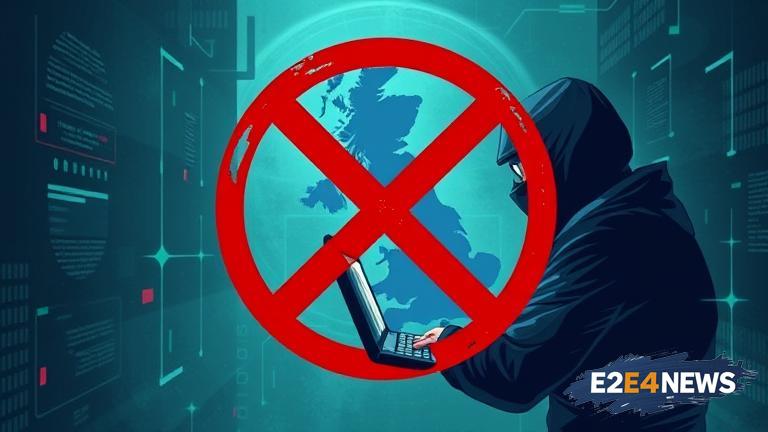In a significant move to combat cybercrime, the UK government has introduced a ban on ransomware payments by public sector organizations. This decision is expected to have far-reaching implications for the way governments and institutions respond to cyberattacks. The ban is part of a broader effort to reduce the financial incentive for cybercriminals, who often rely on ransom payments to fund their operations. By refusing to pay ransoms, the UK government hopes to disrupt the business model of these malicious actors and prevent further attacks. The ban applies to all public sector organizations, including local authorities, healthcare providers, and educational institutions. This move is seen as a crucial step in enhancing the UK’s cybersecurity posture and protecting its critical infrastructure. The UK government has also announced plans to provide additional support and resources to help public sector organizations improve their cybersecurity defenses. This includes investing in advanced threat detection and response capabilities, as well as providing training and guidance for staff. The ban on ransomware payments is also expected to have a positive impact on the private sector, as it sets a precedent for companies to follow. Many private sector organizations have already begun to rethink their approach to ransomware payments, with some opting not to pay in order to avoid funding further cybercrime. The UK’s decision is also likely to influence other countries to adopt similar policies, potentially leading to a global reduction in ransomware payments. The ban is a result of growing concerns about the increasing frequency and severity of cyberattacks, which have become a major threat to national security and economic stability. Ransomware attacks, in particular, have become a significant concern, with many high-profile incidents reported in recent years. These attacks involve the use of malicious software to encrypt an organization’s data, with the attackers demanding a ransom in exchange for the decryption key. The UK government’s decision to ban ransomware payments is seen as a bold move to take a stand against these cybercriminals. By refusing to pay ransoms, the government is sending a clear message that it will not be intimidated or coerced into funding further cybercrime. The ban is also expected to have a positive impact on the development of cybersecurity technologies, as companies and researchers focus on developing more effective solutions to prevent and respond to ransomware attacks. Furthermore, the ban highlights the importance of international cooperation in combating cybercrime, as governments and organizations around the world work together to share intelligence and best practices. The UK’s decision is a significant step forward in this effort, and it is likely to have a lasting impact on the global cybersecurity landscape. In addition to the ban, the UK government has also announced plans to establish a new cybersecurity agency, which will be responsible for coordinating the country’s cybersecurity efforts and providing support to public sector organizations. This agency will play a critical role in helping to implement the ban and providing guidance to organizations on how to improve their cybersecurity defenses. The agency will also work closely with international partners to share intelligence and best practices, further enhancing the UK’s cybersecurity posture. Overall, the UK’s ban on ransomware payments by public sector organizations is a significant step forward in the fight against cybercrime, and it is likely to have a lasting impact on the global cybersecurity landscape. The ban sends a clear message that the UK will not be intimidated or coerced into funding further cybercrime, and it highlights the importance of international cooperation in combating these threats. As the UK continues to develop its cybersecurity capabilities, it is likely that other countries will follow suit, leading to a global reduction in ransomware payments and a safer, more secure online environment.
